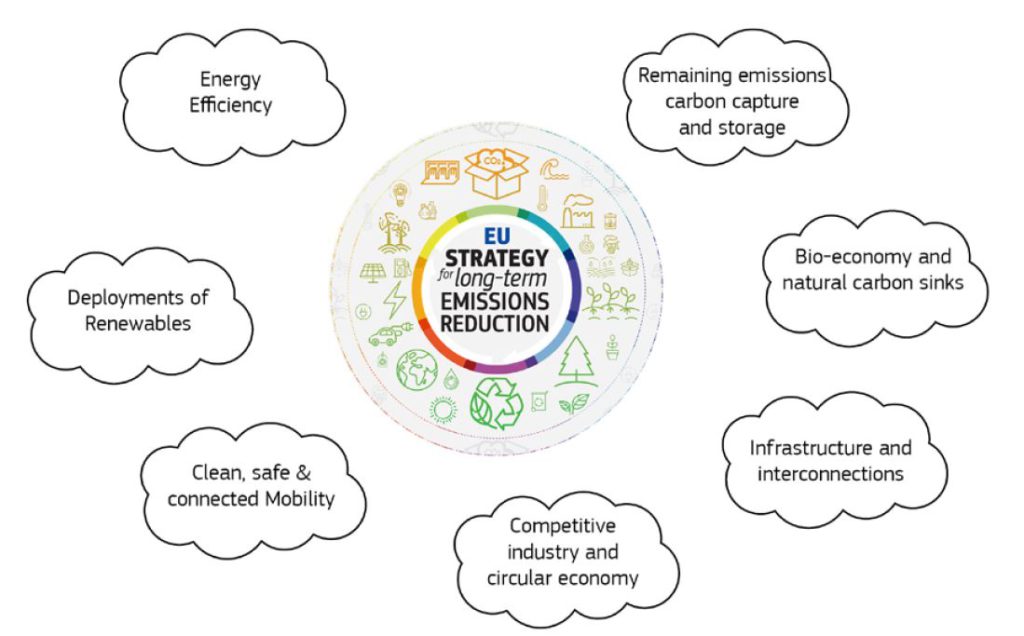Clean Planet for All
By publishing its long-term vision entitled “A Clean Planet for all: A European strategic long-term vision for a prosperous, modern, competitive and climate neutral economy”, the European Commission has set an ambitious objective of a net zero-emissions economy by 2050.
EC is opting for the net zero approach and proposes seven building blocks to achieve this target: energy efficiency; deployment of renewables; clean, safe and connected mobility; competitive industry and circular economy; infrastructure and interconnections; bio-economy and natural carbon sinks; carbon capture and storage to address remaining emissions.

The Commission recognizes that this level of ambition requires financial stimulation to trigger the transition and also that enabling framework will be crucial to deliver transformation. In practice, this means adjusting taxation to ensure an effective pricing of externalities and a fair distribution of transition cost. New EU Industrial Strategy will be needed to roll out technologies, increase circularity and accelerating the demonstration project. It also means free and fair trade and this can only be achieved if there is a global level playing field for competitiveness.
How the fertilizer industry could feed life in the future
Europe’s ambition to be climate neutral by 2050 present a serious challenge for energy-intensive industries, including mineral fertilizer sector. Like all sectors, fertilizer industry also face challenges as both the production of mineral fertilizers and their use in agriculture need to become more sustainable. In its Vision to 2030, Fertilizers Europe outlined a forward-looking view on the production and use of mineral fertilizers in Europe by 2030 and beyond. Feeding Life 2030 vision is based on a mission to continue feeding plants, farmers, people and the economy while responding to other fundamental societal challenges linked to climate change and sustainability. The vision deployment of more knowledge per hectare, promotion of circular economy and industrial symbiosis and the use of ammonia as a carbon free energy carrier are among key solutions that can be provided by our industry.
Fertilizers Europe together with other energy-intensive industries call for an ambitious and comprehensive EU Industrial Strategy to enable industry’s contribution to the EU long-term GHG goals.
In our Vision, the European fertilizer industry is at the crossroads between nutrition and energy. With an appropriate support from policy-makers the industry can play a vital role in providing solutions to European society’s most pressing challenges.
